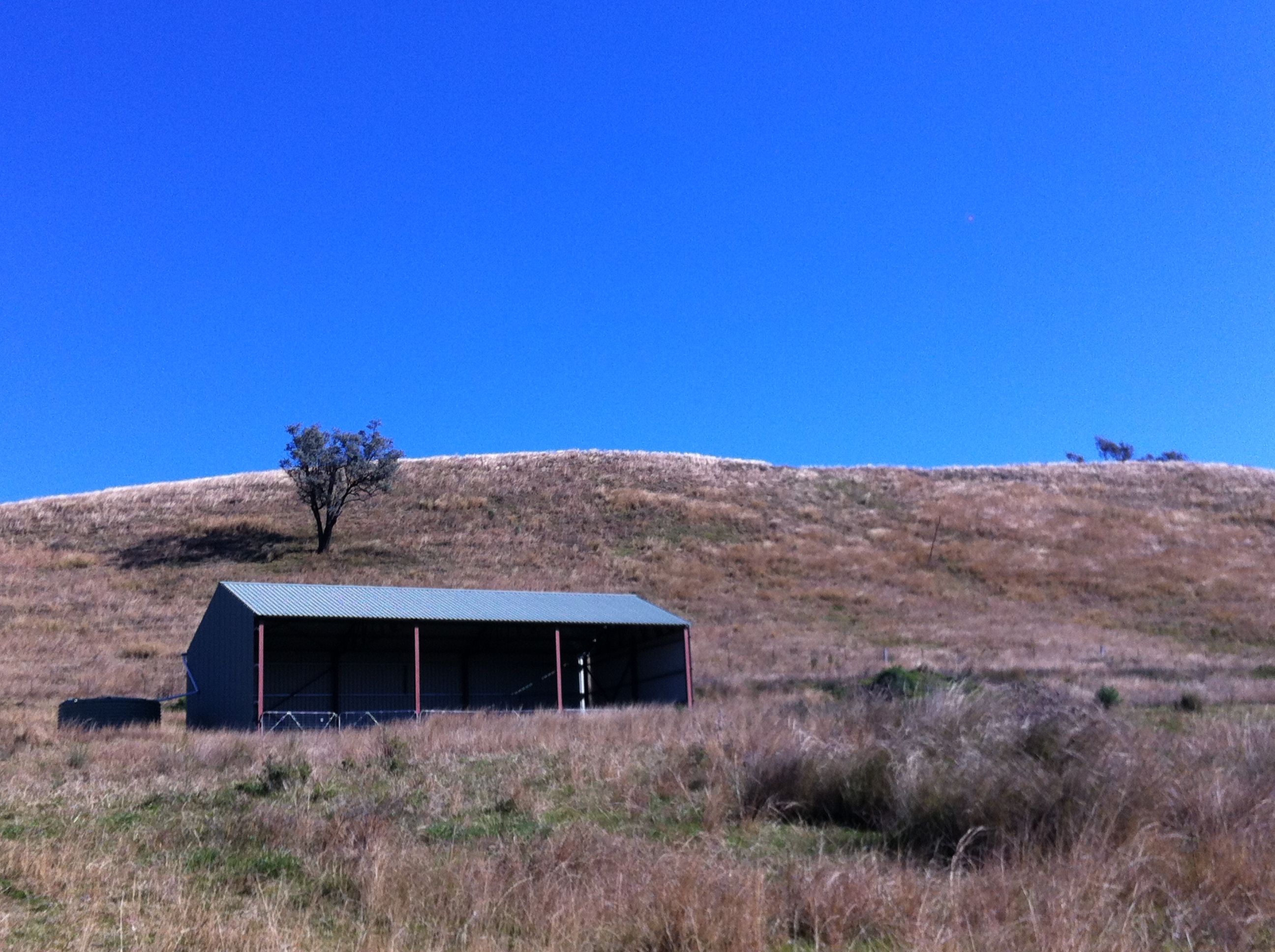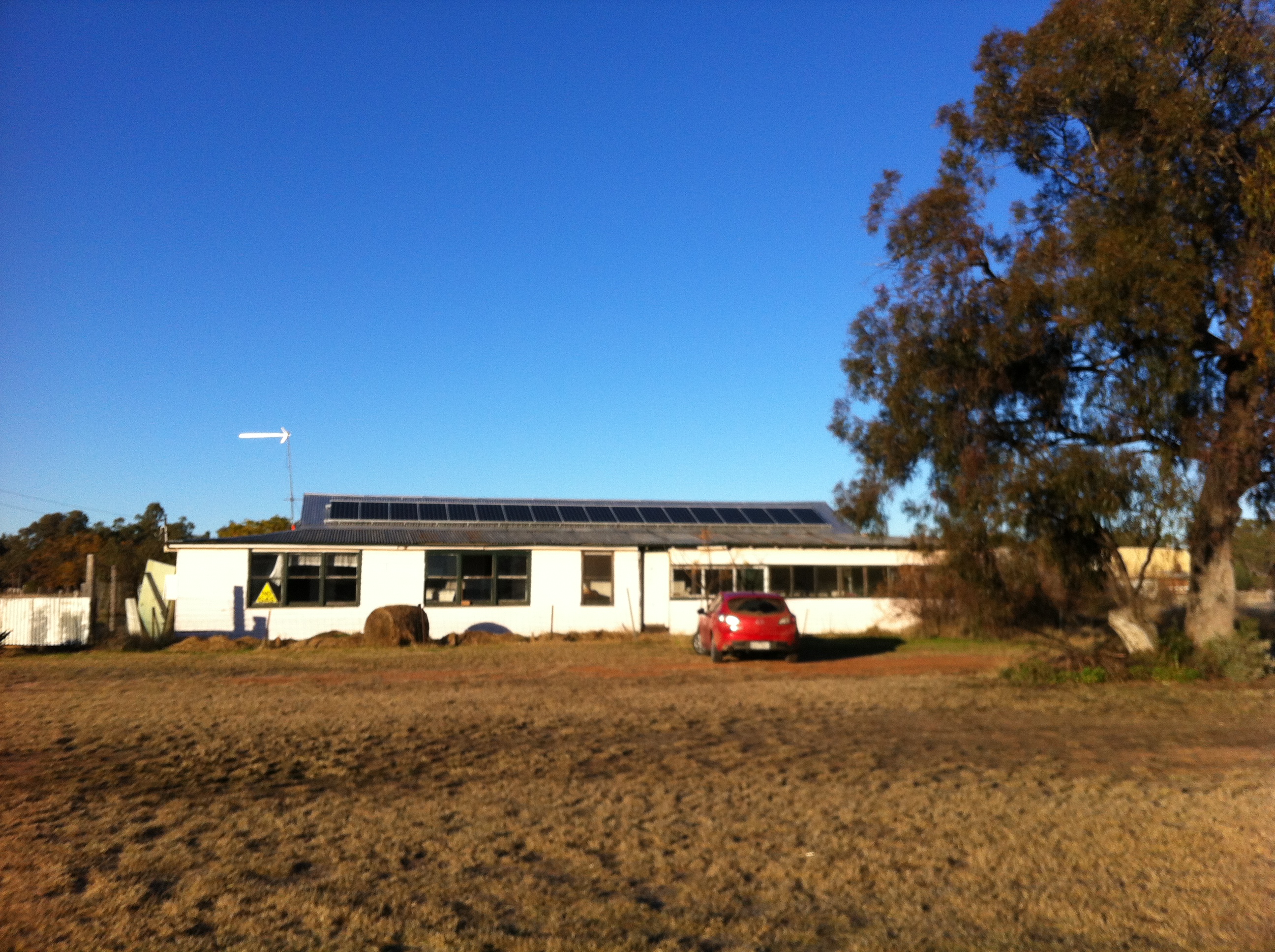 It was my fault. When my next HelpX host contacted me and mentioned that one of their properties had a mineral pool near it and she wanted to make it a place of healing, I was thinking in California terms where place of healing is generally a euphemism for where New Age meets new boobs. Designer fat farms are disguised as wellness centers, Malibu spas double as drug treatment facilities for movie stars. Even my Ob/Gyn offered what she called “boutique” services, including Botox and dermal fillers along with hormone replacement therapy and pap smears. In the Golden State, centers for healing often have little to do with actual well-being and more to do the appearance of health.
It was my fault. When my next HelpX host contacted me and mentioned that one of their properties had a mineral pool near it and she wanted to make it a place of healing, I was thinking in California terms where place of healing is generally a euphemism for where New Age meets new boobs. Designer fat farms are disguised as wellness centers, Malibu spas double as drug treatment facilities for movie stars. Even my Ob/Gyn offered what she called “boutique” services, including Botox and dermal fillers along with hormone replacement therapy and pap smears. In the Golden State, centers for healing often have little to do with actual well-being and more to do the appearance of health.
The Coachella Valley where I lived has more than its share of wealthy residents. Example: The median income in Indian Wells is around $80,000. Most of those people come and go, staying for a few months in the winter until the weather gets too hot and they wing back up to Bainbridge Island in Washington, or maybe Coeur d’Alene , Idaho. In my experience, more than one property equals high income and material prosperity. So when we arrived well after dark in the little village of Pilliga and drove through knee-high grass to park in front of a house sporting a window with broken out panes and a door that didn’t have a door knob let alone a lock, I was surprised. The house had electricity but no heat, just hot water bottles and stacks of blankets.
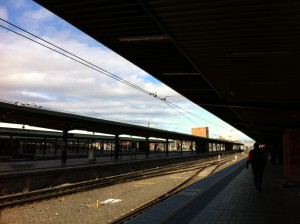 When one has waited on a platform for two hours and ridden a train for six, been driven in a car for another three, not eaten in eight, and is fighting a virus, even the Four Seasons would look bleak. My host was excited about dropping all our things and getting straight down to the hot mineral bath for which Pilliga is known, but all I could do was sit on one of two twin beds and try to absorb my surroundings. Wearing two sweaters, a scarf, boots and my jeans, clutching a hot water bottle, I still shivered. I pleaded exhaustion and promised to check out the hot mineral pool in the morning. My host said she’d be up at 5 a.m., ready to go. I turned out the light and crawled under the covers, not bothering to undress, with my hottie, as they called it. (I could have used a different kind of hottie to keep me warm.)
When one has waited on a platform for two hours and ridden a train for six, been driven in a car for another three, not eaten in eight, and is fighting a virus, even the Four Seasons would look bleak. My host was excited about dropping all our things and getting straight down to the hot mineral bath for which Pilliga is known, but all I could do was sit on one of two twin beds and try to absorb my surroundings. Wearing two sweaters, a scarf, boots and my jeans, clutching a hot water bottle, I still shivered. I pleaded exhaustion and promised to check out the hot mineral pool in the morning. My host said she’d be up at 5 a.m., ready to go. I turned out the light and crawled under the covers, not bothering to undress, with my hottie, as they called it. (I could have used a different kind of hottie to keep me warm.)
Although there was stomping, clomping and some quiet singing early in the morning, I didn’t completely wake until the sun was well up, around seven. I was dressed already so that was handy. I had been told the night before that they typically didn’t use the toilet because the septic system was dodgy and the composting toilet wasn’t yet functional, so I had a quick slice of bread with peanut butter, put some tissues in my pocket and wandered off in search of a bathroom, or, short of that, a friendly shrubbery.
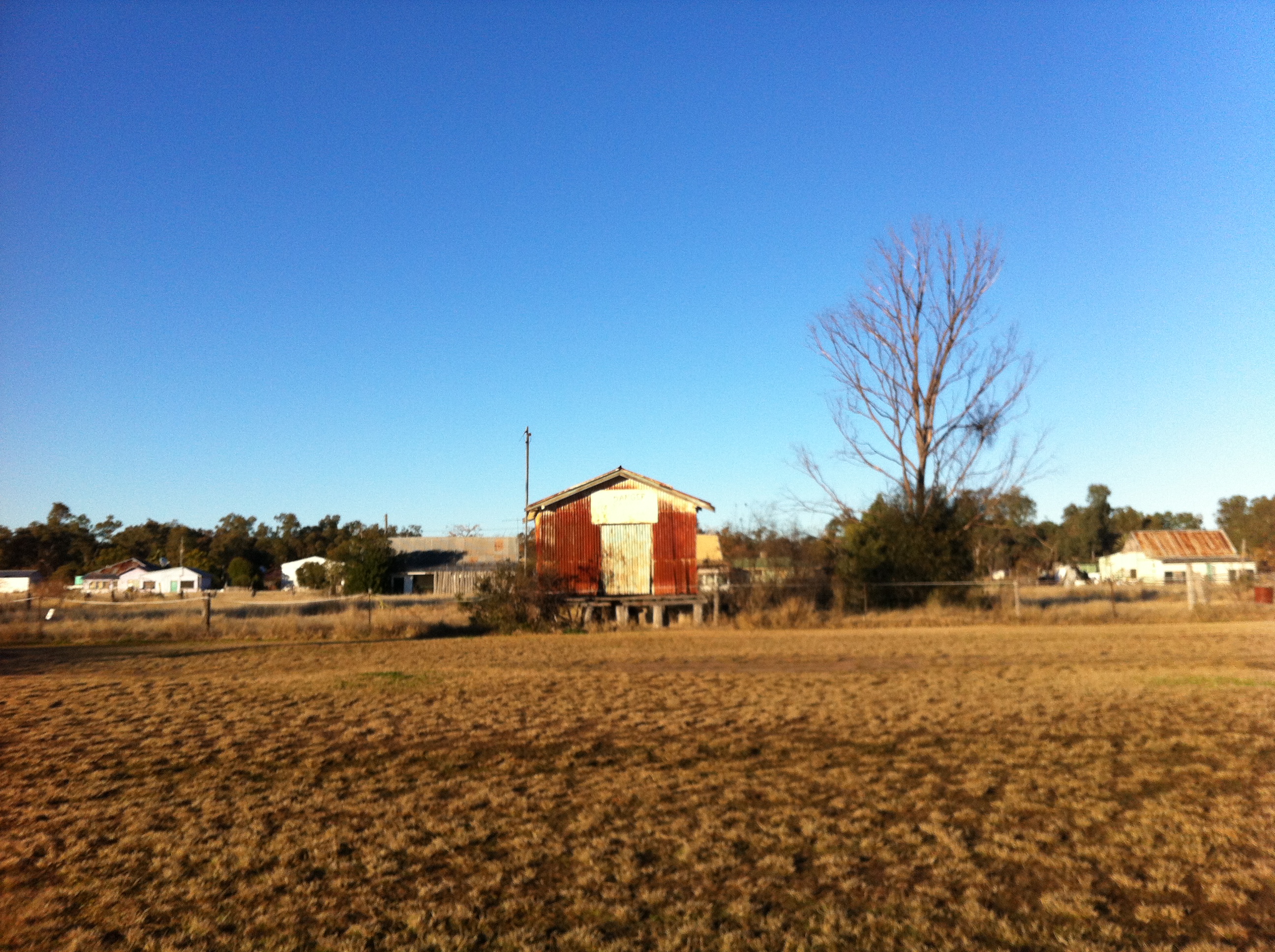 The morning was robin’s egg blue. Tawny gold. Fringed with scrub oak and bush. Rusted corrugated steel sheds. Houses with clotheslines out back and trucks out front. A herd of goats in a paddock. A primary school founded in 1883. A community center with (praise be!) public toilets – that were unlocked. A tennis court. A boarded-up café, all peeling paint and sagging roof. A road sign that pointed out that the new café was farther down the road into town. Endless, flat, golden land, quiet enough to make your ears ring. Crisp but not frosty, sun warming already.
The morning was robin’s egg blue. Tawny gold. Fringed with scrub oak and bush. Rusted corrugated steel sheds. Houses with clotheslines out back and trucks out front. A herd of goats in a paddock. A primary school founded in 1883. A community center with (praise be!) public toilets – that were unlocked. A tennis court. A boarded-up café, all peeling paint and sagging roof. A road sign that pointed out that the new café was farther down the road into town. Endless, flat, golden land, quiet enough to make your ears ring. Crisp but not frosty, sun warming already.
Everything looks better in the morning.
K. came back from the pool later, wondering where all of us were. Her son was awake, but her daughter was still asleep, but got up after we all started chatting a bit. I shared the details of this project with them, and C. mentioned a friend of hers who had traveled the world and written about the same thing – sort of. C. herself is firmly rooted in Melbourne – grew up there, and just completed nursing training and has started a new job. She’s a city girl. Her idea of home is Melbourne. Her brother, E., has lived in Thailand, the Phillipines and the Northern Territory with his mom and dad. Yet he considers the house where he spent the most time of his childhood in Invergowrie home because it was the place they always came back to.
*
In the vernacular of the Aboriginal tribe that is native to that area, Pilliga means “place of oaks.” There are oak trees there, but more notable is the bore bath, a thermal pool that is a favorite of the grey nomads, retired Australians who tow caravans around, staying for a few weeks here, a few weeks there. Pilliga is barely a village, but has the necessities: police, a post office, a café/convenience store, a pub and fuel. It’s nearly 300 kilometers west of where I arrived in Tamworth, on the North Tablelands of the Great Dividing Range – which is actually a network of mountain ranges – that runs all the way from southern Victoria up to Queensland.
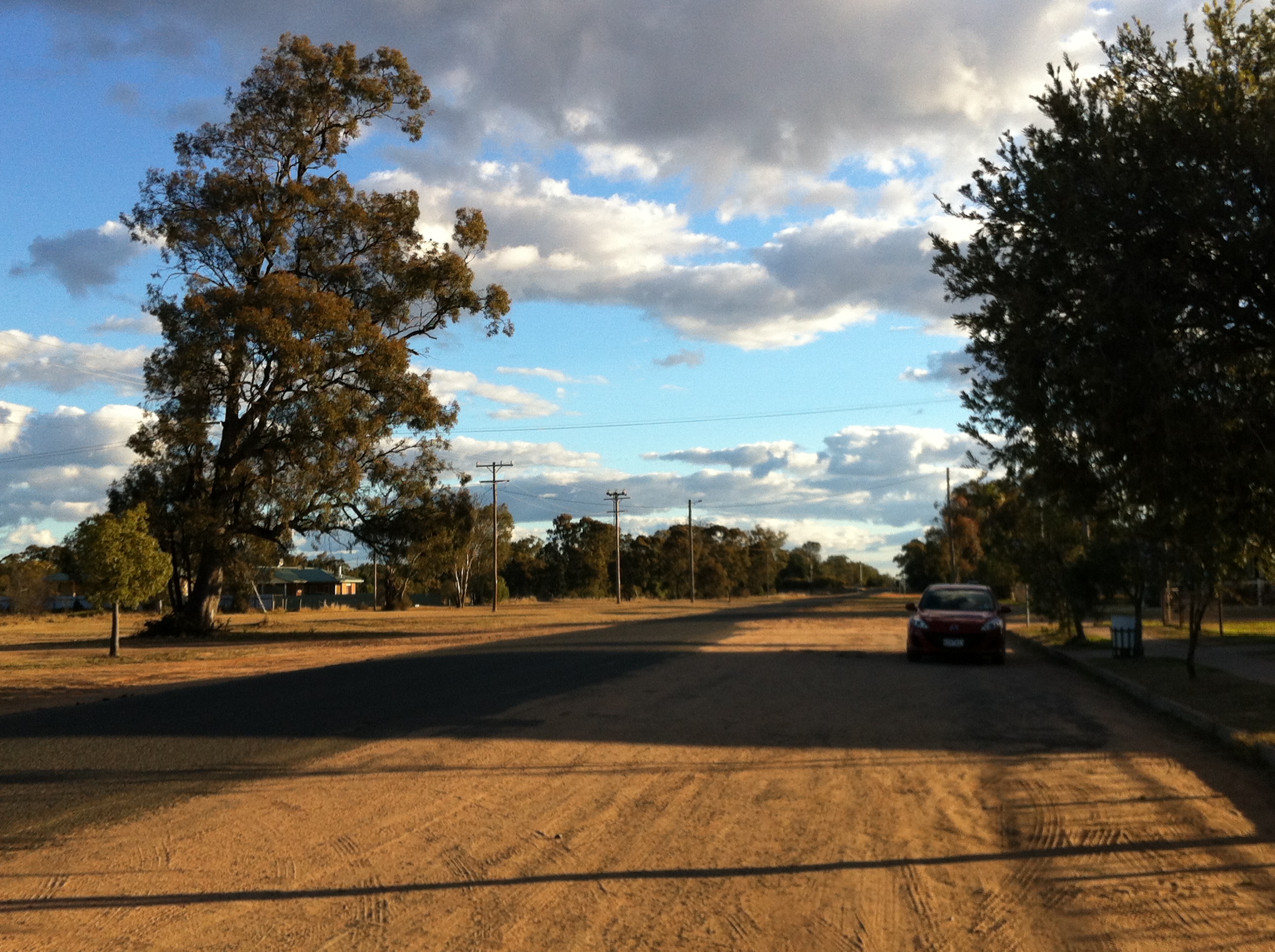 The area around Pilliga is full of broad-acre farming, and one of the main crops is cotton. As we walked along the road up to the pool, I made the comment that it looked like a cushion had exploded, picturing someone moving furniture and having a couch pillow escape. My host’s son told me that the fluff blows off of trucks hauling bales of cotton. The cotton farmers irrigate from the Murray and Darling River systems as well as the Great Artesian Basin aquifer. Right now, just about everybody is worried about water quality because 70 percent (yes, that’s seven-zero) of New South Wales is under exploration permit for coal mining and coal seam gas
The area around Pilliga is full of broad-acre farming, and one of the main crops is cotton. As we walked along the road up to the pool, I made the comment that it looked like a cushion had exploded, picturing someone moving furniture and having a couch pillow escape. My host’s son told me that the fluff blows off of trucks hauling bales of cotton. The cotton farmers irrigate from the Murray and Darling River systems as well as the Great Artesian Basin aquifer. Right now, just about everybody is worried about water quality because 70 percent (yes, that’s seven-zero) of New South Wales is under exploration permit for coal mining and coal seam gas
I finally went with the family to the bore bath, a mineral pool that maintains a 99 degree temperature. The water smells slightly sulfurous, but not overpowering. A thin layer of green algae or moss coats the bottoms and sides of the pool. While the heat felt great, the most fascinating thing for me was watching K. give her daughter C. a treatment. K. is a physical therapist (or physio, as they call them over here) and is truly a healer. After outfitting C. with special floats that she constructed herself, she supported C. as she floated, stretching her, bending her, swishing her back and forth in the water, even dunking her for greater access to a sore hip or shoulder. The treatment went on for at least an hour, and the entire time, K.’s face was composed in a beatific smile. Then, she started on her son, and did a treatment nearly as long. Altogether, we spent maybe 2-3 hours in the pool. The night wasn’t quite cold enough for frost, but when I got out, my core temperature had been raised to the point that I wasn’t cold. We all scurried home to bed before we got col.
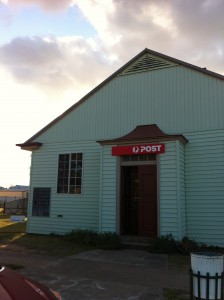 We were back at the bath by 5:30 the next morning, the only ones there for about an hour. With the lights off, Orion, the Pleiades, the full moon glowed. Steam from the water and our wet bodies. Wood smoke. The low gush of water coming out of the pipe. The sky turning from cobalt to sapphire to aquamarine, blushing in primrose and apricot. Once the sun was up, we dressed and left to drive back to Armidale, stopping to visit K.’s sister and niece along the way
We were back at the bath by 5:30 the next morning, the only ones there for about an hour. With the lights off, Orion, the Pleiades, the full moon glowed. Steam from the water and our wet bodies. Wood smoke. The low gush of water coming out of the pipe. The sky turning from cobalt to sapphire to aquamarine, blushing in primrose and apricot. Once the sun was up, we dressed and left to drive back to Armidale, stopping to visit K.’s sister and niece along the way
K. possesses passion and idealism and compassion in abundance. Many would identify her as a child of the 60s and 70s, maybe even a hippie. But labeling something is a convenient way of dismissing it. Yes, K. is an activist and conservationist, attending demonstrations against coal seam gas exploration and mining and its resultant pollution. Her bathwater is saved for laundry, which in turn is used to flush the toilet. She uses a dishpan, something that I haven’t seen since I was a kid, and throws the water out on the back yard garden plots. A compost bin resides in the kitchen. Worms and their castings break down the compost on the garden. She grows her own vegetables. She is a vegetarian. The house is heated with a wood stove.
Until I experienced K. and P.’s lifestyle, I never questioned if I perhaps had an attitude of entitlement. Coming from California and an upper middle class lifestyle that included a BMW and a 4000-square-foot home, a person can get used to those things and assume that the entire world has access to them. I don’t think that I am that naïve or arrogant. But living in material prosperity for a prolonged period of time, a person becomes accustomed to things like flushing the toilet without thinking and allowing shower water to run down the drain. And how many times did I do just a quick load of laundry? Basic residential conservation is simple, but the fact is, saving water in those ways is just not convenient. Plus, in California’s Coachella Valley, it’s actually illegal to install a grey water recycling system. The cities have just started to use recycled water to irrigate a handful of the 120-plus golf courses.
Which begs the question – for me anyway – is home where you let the shower water run? Or is home where you are vigilant and conserve what you’ve got
Next, Armidale and painting with K. and P.

